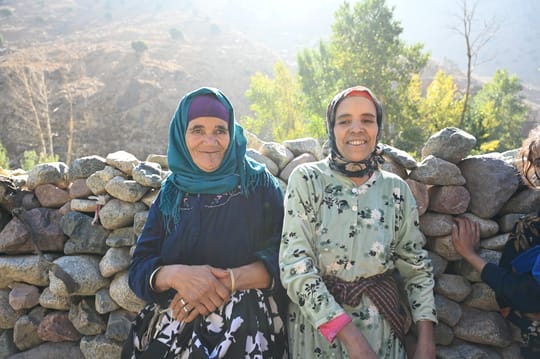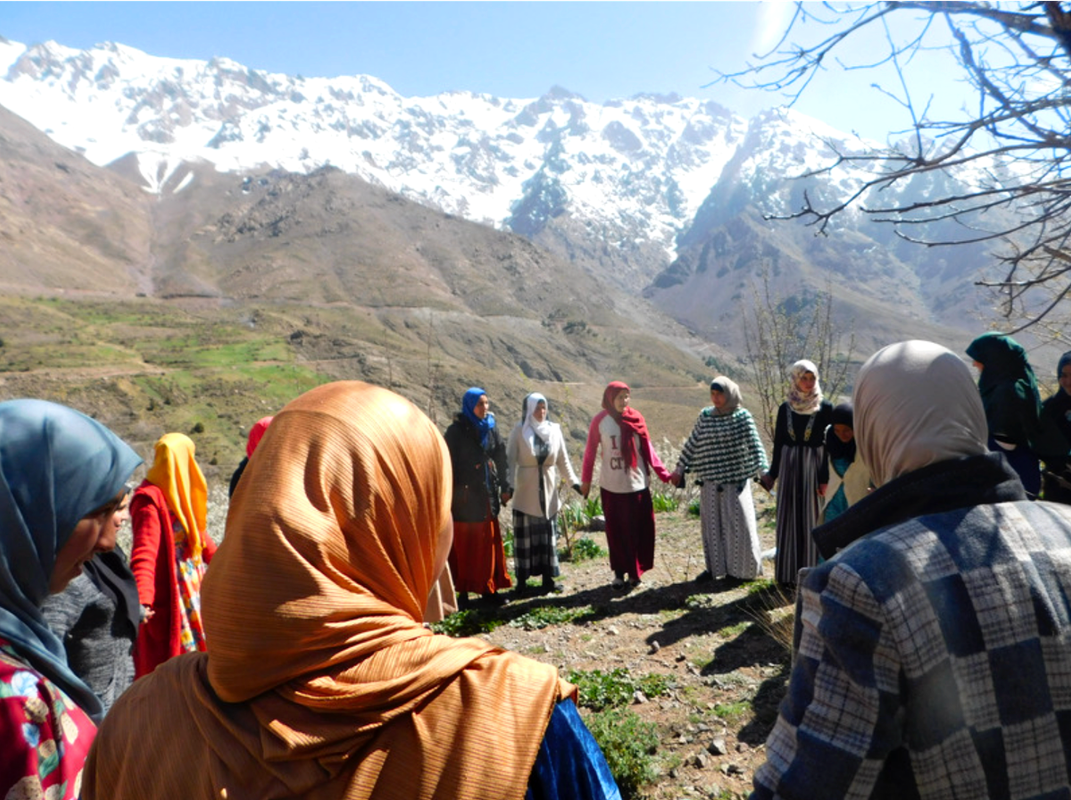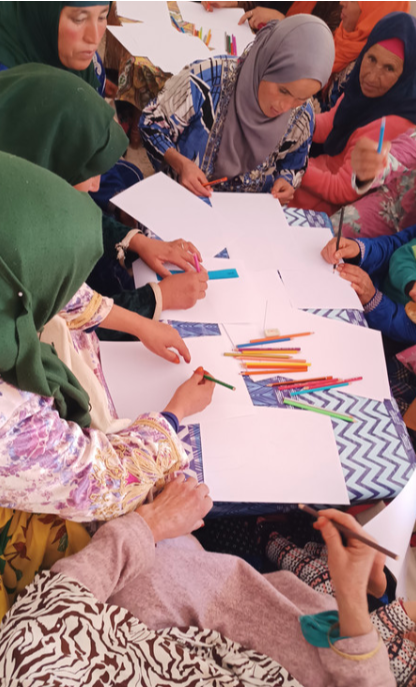– Morocco: Literacy program empowers women toward sustainability, Esi-Africa.
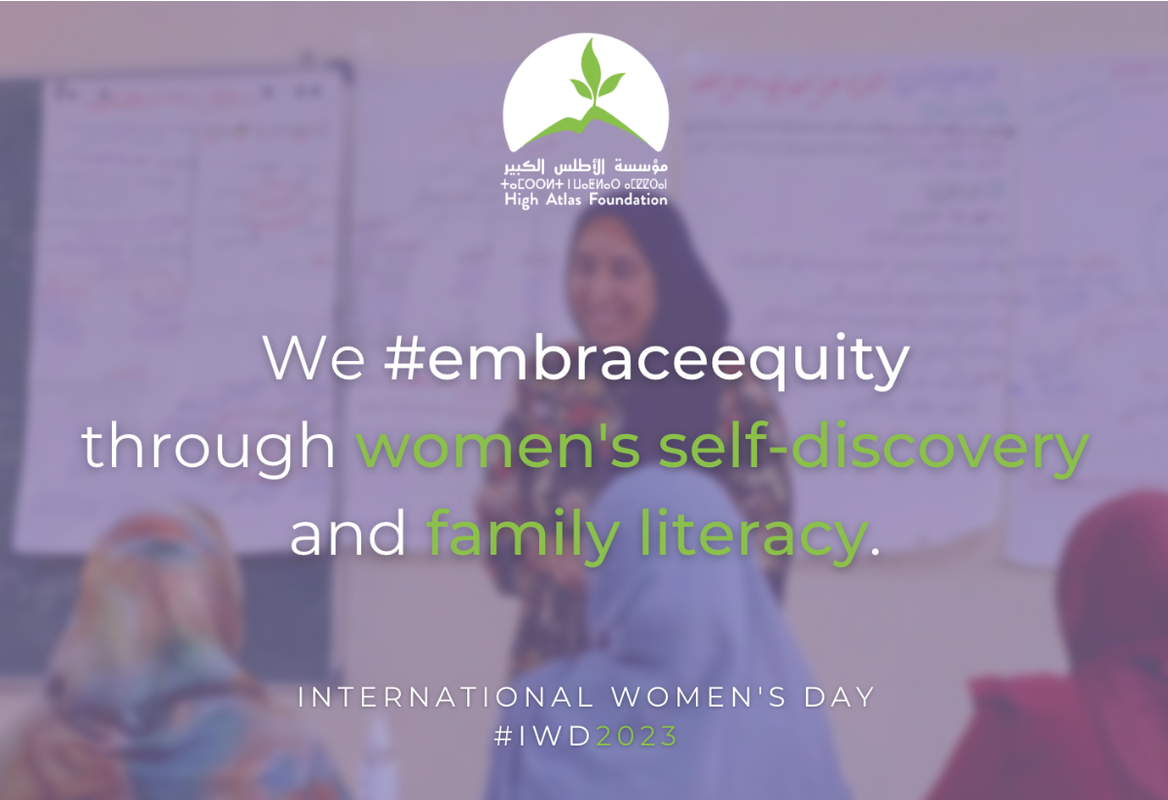
For International Women’s Day, the High Atlas Foundation team is honored to share with you highlights and milestones from the first year the Family Literacy program we are implementing in the Marrakech-Safi and Beni Mellal-Khenifra regions of Morocco, which is financed by the European Union.
This program is multi-faceted, including Imagine empowerment workshops, literacy classes, and business and agricultural training for over 1,000 women.
This week and throughout the month, we invite you to recognize and applaud the women we work with in Morocco who are creating the lives they most want and who act as the driving forces in their families and communities.
With gratitude,
Support HAF Women’s Empowerment
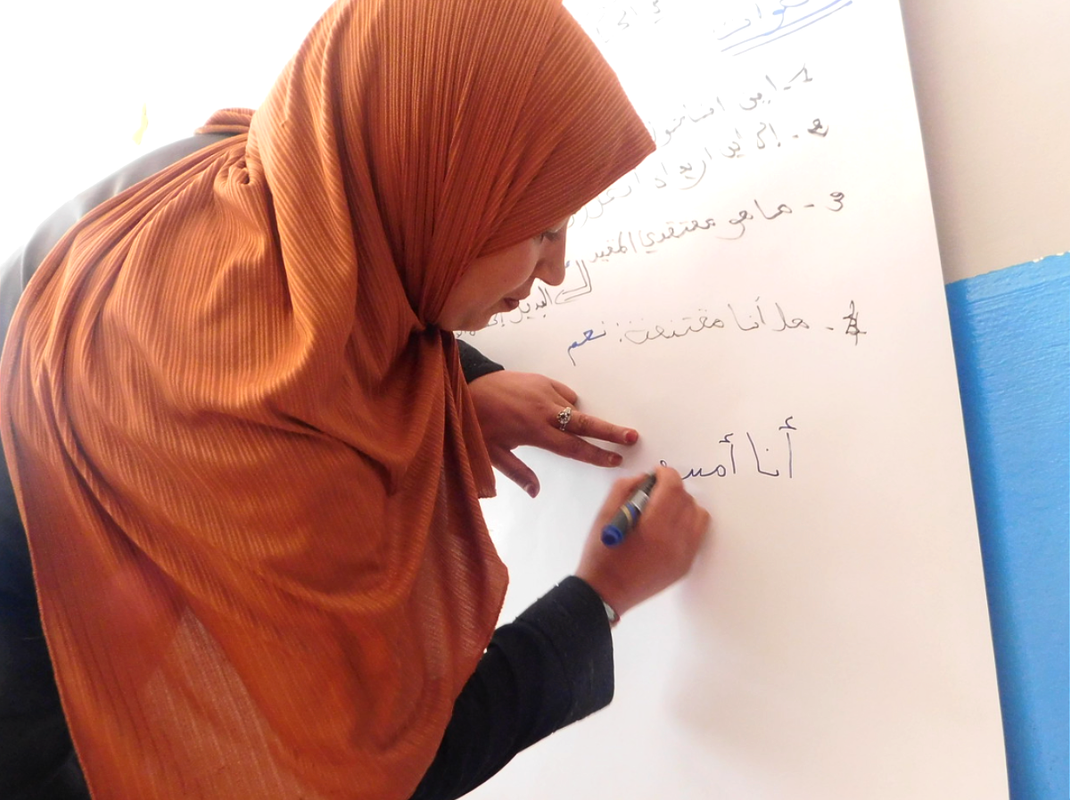
About the Family Literacy Program
| HAF’s Family Literacy program has given more than 1,000 women from rural areas a chance to improve their lives.
Last year, these women—in groups from 40 different communities throughout the Beni Mellal-Khenifra and Marrakech-Safi regions—joined together to discuss their goals and dreams, contributing their individual voices to group decision-making. Each group completed a four-day, rights-based “Imagine” workshop of self-discovery, reflecting on and gaining insight about their innermost desires for their futures. They began the journey of furthering their education through literacy classes taught by women from their own villages who were trained through the National Agency for the Fight Against Illiteracy. And they started and grew business cooperatives to sell goods for additional household income. | In this second year of the program, the women will continue with their literacy lessons and the development of their cooperatives.
Preschool lessons for their children will also commence. By learning together and reading together at home, the concept of ongoing family literacy is anchored within the household and throughout the community. Thanks to this program, HAF is helping to reduce illiteracy among rural women and girls and improving equity and gender equality through personal and educational development. Women thus empowered become models of achievement for other women, inspiring their family members and mobilizing their communities toward sustainability. |
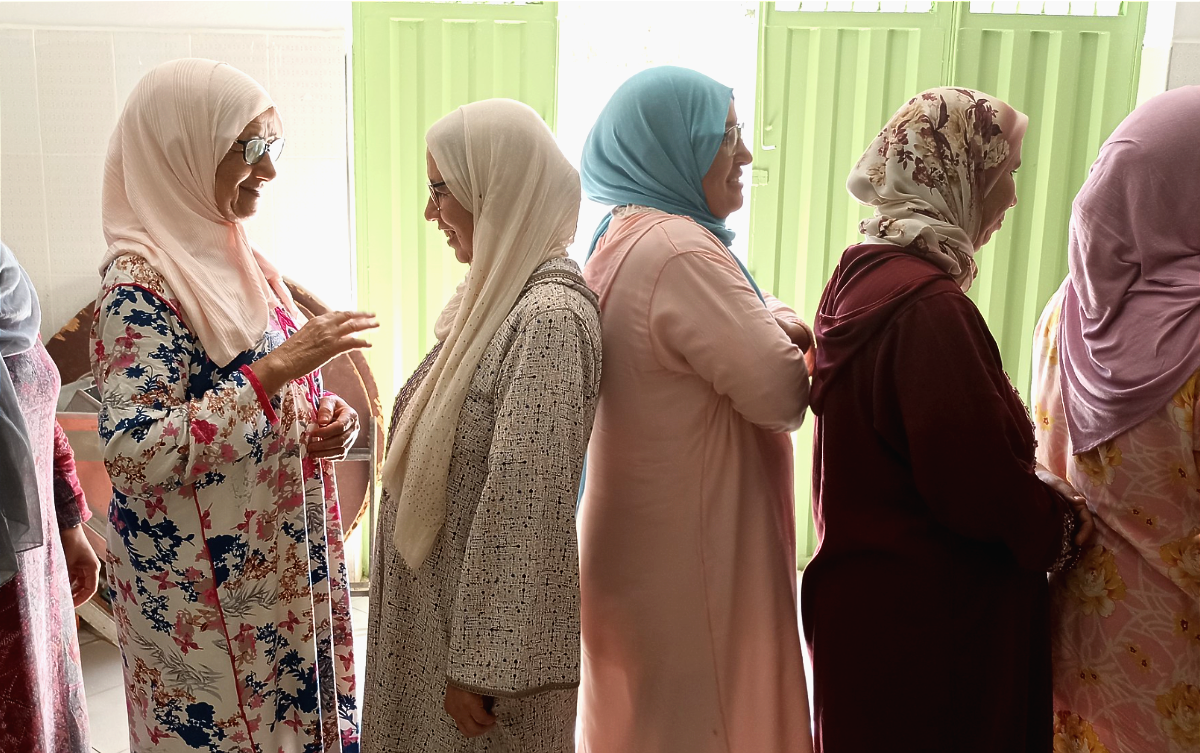
Family Literacy in Numbers: Year 1
-
40 cooperatives and women’s groups participated in four-day Imagine empowerment workshops addressing seven life areas
-
48 women’s groups engaged in participatory community planning
-
42 community learning centers created
-
37 rural women trained as literacy teachers by the National Agency for the Fight Against Illiteracy
-
20 university students trained to assist the literacy teachers
-
Thousands of books, markers, and other school supplies distributed to women in more than 40 communities
-
966 rural women tested to determine literacy levels and engaged in six months (144 hours) of literacy classes
-
27 workshops conducted in agricultural skills by the USAID Farmer-to-Farmer program and in managing business cooperatives by the Office for the Development of Cooperation
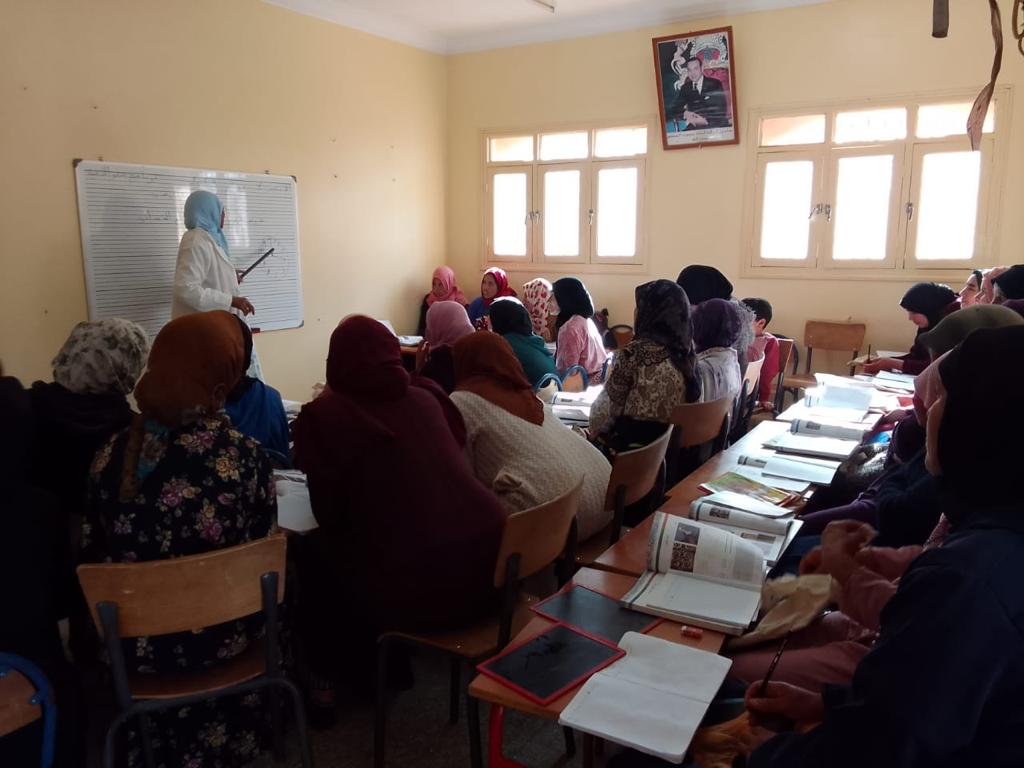
Women Embracing Collective Entrepreneurship
Having attended self-empowerment workshops, women participating in the Family Literacy program have shown great interest in making a change for the better. In attending literacy classes, they’ve expressed genuine enthusiasm about learning to speak, read, and write in the Arabic language. And having learned how to establish their own cooperatives, they’re now doing just that.
In Khenifra, for example, women are already collaborating on new, empowering endeavors. With a knack for making traditional Moroccan pastries, bread, and cereal products, some of these women have decided to together establish an agricultural cooperative, calling it Tamlalt, that will grow plants and raise livestock. Another group has decided to use their artisanal skills to create an industrial cooperative named Alahed Aljadid, which produces traditional clothing. They have already begun to market their products.
Examples like these are why we #EmbraceEquity and do the work we do. We look forward to continuing support of these and other women’s cooperatives to achieve their goals for personal and professional growth, including through the USAID Farmer-to-Farmer program.
Stories from Marrakech-Safi
|
| |
|
|
Stories from Beni Mellal-Khenifra
|
|
Today, the Family Literacy program in Marrakech-Safi went live on Facebook with the Titbirin Nozaghar Cooperative from the Ourika Valley. Take a look.
On International Literacy Day on September 8, HAF President Yossef Ben-Meir facilitated a discussion among Amina El Hajjami and Sanae Benaadim, who manage the Family Literacy programs in Marrakech-Safi and Beni Mellal-Khenifra, respectively. Watch it on Facebook.

